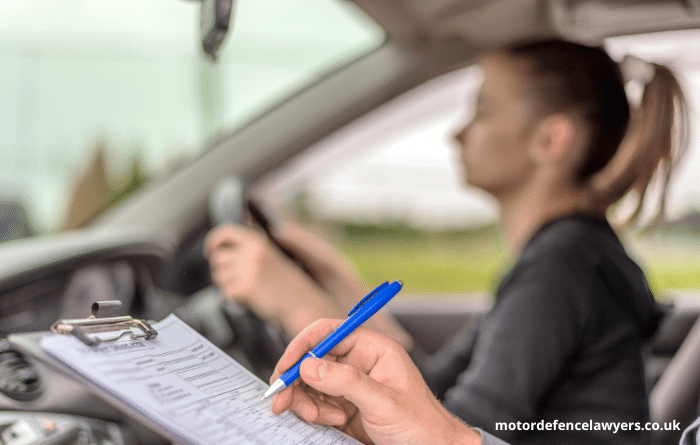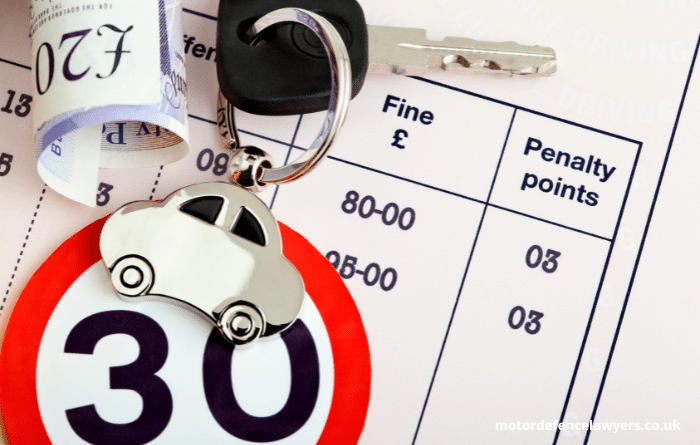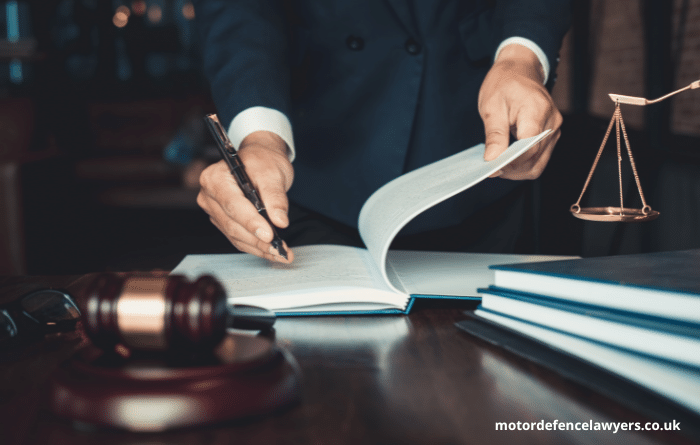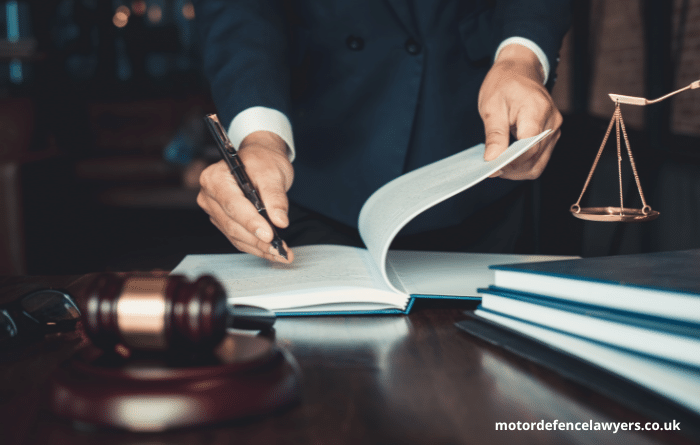Why Choose Us
- Ranked in the top 20 law firms by Trustpilot
- Nationwide Legal Coverage
- Free Consultation
- Fixed Fee Terms
- Competitive Rates
- Flexible Payment Plans
- Trusted Legal Care
- UK’s Leading Motoring Solicitors
4.8 out of 5
Our customers rate us
“EXCELLENT”
AS SEEN ON

07.11.2023
A Guide To The New Drivers Act
The New Drivers Act, officially known as The Road Traffic (New Drivers) Act of 1995 sets specific conditions for those who’ve been licensed for less than two years. Within this period, if a new driver gets 6 or more penalty points, the DVLA will automatically revoke their licence.
In this scenario, the driver would return to a provisional licence status and be required to retake both the theory and practical driving tests before driving again. It’s worth knowing that whilst driving with a revoked licence is illegal, there is a provision allowing new drivers to petition the court for a brief driving ban instead of points, which could assist in avoiding revocation in the first place.
While this might seem advantageous in the first instance, especially given the long waiting times for re-tests, it may compromise public safety, which the act aims to protect.
As a result, if you are facing any driving penalty as a new driver, consulting a legal expert is advisable to navigate the best course of action.
Understanding the intricacies of the Road Traffic (New Drivers) Act can be complex for those new to driving but our legal experts here at Caddick Davies Solicitors have extensive experience dealing with new driver revocations.
We understand all the options available and can offer strategic advice on the best path forward for your specific circumstances. Whether it’s appealing the decision, reapplying for your licence, or petitioning the courts for an alternative ruling, we will build the strongest case possible.
Don’t lose your driving privileges without exploring every avenue. We’re here to help.
Contact our team anytime at 0151 944 4967 for a free new driver consultation.
Understanding the law is crucial when facing the potential loss of your driving privileges. Read on to learn more about licence revocation under the Road Traffic (New Drivers) Act 1995.

Once you have passed your theory and practical driving test and have a valid driving licence, you are required to adhere to the rules of the road. If you fail to do so, then your licence may be revoked by the DVLA under powers given within the Road Traffic (New Drivers) Act 1995.
This statute covers the following key areas:
Probationary Period
Per Section 1 of the Road Traffic (New Drivers) Act 1995, all drivers are within a ‘probationary period’ for the first 2 years following the date of becoming a qualified driver. For example, if you passed your driving test on the 1st of January 2023, then you are regarded as a ‘new driver’ in law over a two-year probationary period until the 1st of January 2025.
Penalty Point Accumulation
If you fall within this ‘probationary period’, then you are subject to the regulations under the Road Traffic (New Drivers) Act 1995 and the DVLA have the power to revoke your driving licence should you accumulate a certain number of penalty points on your driving licence within this time.
According to Section 2 of the Road Traffic (New Drivers) Act 1995, if you accumulate 6 or more points within the ‘probationary period’ then your driving licence is automatically revoked by the DVLA.
Penalty Points Occurring within 2 Years
The penalty points that will be considered by the DVLA are any points for offences committed during the ‘probationary period’. Therefore, if you commit an offence during the ‘probationary period’ but the points are not put on your licence until after this period has ended, then you will still be subject to the new driver regulations and your driving licence will be revoked by the DVLA.
Revocation Consequences: Returning to Provisional Licence and Retaking Driving Tests
Once the DVLA have been notified that you have accumulated 6 or more points within the first 2 years of driving they will send you a letter in the post to inform you that your driving licence has been revoked and warning you to not drive until you have taken further re-tests.
You will be required to surrender your driving licence to the DVLA by posting it to them.
Having your driving licence revoked essentially resets your driving status back to square one. Unlike being disqualified, where you’re temporarily banned from driving for a set period, revocation means you completely lose your licence. As a result, you can’t drive at all until you pass your driving tests again.

To regain your driving licence after revocation you will need to:
Only once you have done the above 3 things will you be given a valid driving licence and be able to drive again.
If you do not retake your tests and continue to drive on a revoked driving licence, then you are committing an offence of ‘driving otherwise following a driving licence’ under Section 87(1) of the Road Traffic Act 1988. Such an offence carries a financial penalty and the endorsement of between 3-6 penalty points on your driving licence.
If the police give you a Conditional Offer of Fixed Penalty for a driving offence, which involves adding penalty points to your licence, be careful if you’re a new driver. For those in their first 2 years of driving, accumulating 6 or more points leads to revocation, so in this case, you shouldn’t accept this offer if you want to keep your licence.
You can either ignore this offer or write to the police to formally reject it. There’s no penalty for not accepting a Conditional Offer of Fixed Penalty.
If you don’t accept the offer, the police will move the case to the Magistrates’ Court. You’ll then get a ‘Single Justice Procedure Notice’ from the police, charging you with the offence. This notice gives you 21 days to plead and ask for a court hearing.
If you’re trying to avoid licence revocation, it’s important to request a court hearing. This is because, at the hearing, you can ask the court for a different penalty instead of the one that would lead to revocation.
Caddick Davies can support you in this process. Contact our team at 0151 944 4967 for advice.

If you’re a new driver and have accepted a Conditional Offer of Fixed Penalty from the Police which has resulted in your driving licence being revoked, your options to reverse this are quite limited.
You can try asking the Police nicely to reconsider their decision, but there isn’t an official appeals process after you’ve accepted the offer. It’s up to the Police’s discretion to change their decision. It’s quite uncommon for the Police to cancel an accepted Conditional Offer of Fixed Penalty and then take the matter to the Magistrates’ Court.
If you have received notification from the DVLA that your licence is revoked, and the case has already been considered in the Magistrates’ Court, then you cannot appeal to the DVLA to reconsider their position.
The DVLA are required by statute to revoke the licence of any driver that accumulates 6 or more points within the first 2 years of driving. The circumstances surrounding the date of the offence made/accumulation or the reasons that you need your driving licence does not matter to the DVLA.
The DVLA are bound by statute, and therefore there is no appeals process with them.
In this scenario, your only options are to:

If you’re in this situation, you can appeal the Magistrates’ Court’s decision to the Crown Court.
To do this, you need to file an appeal against the sentence with the Magistrates’ Court within 21 days of receiving the sentence. Once you’ve submitted your appeal and it’s processed, the DVLA will be informed to reverse the revocation of your driving licence.
Note that until your driving record is officially updated, you won’t be allowed to drive, even while your appeal is in progress. So, after lodging your appeal, it might take a few weeks for the DVLA to update their records, and only then will you be able to drive again if successful.
If you didn’t know about the court proceedings against you, an appeal isn’t necessary. You can request to reopen the case using a ‘statutory declaration’ under Section 16E of the Magistrates’ Court Act 1980.
A statutory declaration is a formal written statement confirming that, to the best of your knowledge, you were unaware of the court proceedings. It’s like telling the court you didn’t know about the case and want it reopened. Once the court processes your declaration, the case reopens, and any previous sentences, including any DVLA revocations, are lifted. You can drive again once the DVLA updates their records, similar to the process after an appeal.
You need to submit your statutory declaration in writing to the Magistrates’ Court within 21 days of finding out about the proceedings. After submitting it, you’ll need to enter your plea for the original offence (s) and request a court hearing.
If you knew about the court proceedings but didn’t realise your licence would be revoked due to the court’s penalty, you might be able to get the Magistrates’ Court case reopened.
This is possible under Section 142 of the Magistrates’ Court Act 1980, but only if reopening the case would serve the “interests of justice.” Convincing the court can be challenging, and it’s not always the best course of action. Sometimes, appealing to the Crown Court is a more effective way to address the revocation of your licence.
You will need legal support to effectively navigate any of the three options above and our team can help. Contact Caddick Davies at 0151 944 4967 for advice.

As a new driver, facing licence revocation can be daunting. If you’re charged with an offence and don’t have a defence, you’ll likely receive the standard penalty, which often means getting points on your licence. You should know however that if accumulating these points will result in your licence being revoked, there’s an alternative route you can take.
You have the option to request the court for a brief period of disqualification from driving. Opting for a short-term driving ban can be a strategic move, as it supersedes the points that would have led to your licence revocation.
Essentially, the temporary ban acts as a substitute for the points, helping you avoid the automatic revocation that comes with the New Drivers Act.
Per Part 25 of the Magistrates’ Court Sentencing Guidelines, any offender liable for an endorsement which will cause their driving licence to be revoked under the new drivers’ provisions may ask the Court to impose a disqualification from driving rather than impose points.
This will avoid the requirement to retake your driving tests. However, the guidelines also stipulate that, generally, this would be inappropriate since it would circumvent the clear intention of Parliament.
Parliament’s intention when creating the ‘new driver’ provisions is not stipulated anywhere but it is generally accepted amongst legal professionals that the purpose of the provisions was to protect the public from incompetent and new drivers. Therefore, any individuals who have demonstrated a poor standard of driving may need to undergo further testing to ensure that they are fit to drive.
When facing the possibility of licence revocation as a new driver, you may have the opportunity to persuade the court to impose a disqualification period instead. Successfully doing so hinges on convincing the court that this alternative aligns with the interests of justice.
Consider these points to make a compelling argument:
By focusing on these aspects, you can make a strong case for why a disqualification period is a more appropriate and just response than revocation under your unique circumstances.
If the Court agrees to a disqualification instead of penalty points, then it is at their discretion as to how long the disqualification is for. Generally, the disqualification will be for 7-56 days however, this is not an exact science and is at the discretion of the Court so could be for longer.
Usually, the Court will not impose a disqualification for a longer period in this case, as it would effectively be pointless if revocation would see you off the road for less time.
Why Would A Disqualification Be Better Than Revocation?
Disqualification may be a much better option for you than revocation for many reasons e.g.:
Yes, you can receive points on a provisional licence. Those points stay on your record for 3 years and will carry over to your full licence once you pass your driving test.
You are not subject to revocation as a provisional holder, since you do not have a full valid licence that can be revoked. However, if you pass your test while penalty points from offences committed as a learner are still valid, they can trigger a revocation under the New Drivers Act.
No, once you retake and pass both the theory and practical driving tests after a revocation, you are no longer regarded as a new driver under the law. In this case, a further 6+ points would not lead to another revocation. However, you are still subject to ‘totting up’ rules that can impose a 6-month driving ban if you accumulate 12+ points within 3 years according to Section 35 of the Road Traffic Offenders Act 1988.
For further information, please also refer to our previous article on ‘totting up’
In summary, new drivers within their first two years after passing their driving tests face stringent measures under the New Drivers Act. Accumulating 6 or more points during this period leads to automatic licence revocation meaning you will need to retake both the theory and practical exams before driving legally again.
While new drivers can opt for a short ban instead of points through court proceedings, this may bypass the act’s primary objective of safeguarding public safety by ensuring inexperienced drivers remain cautious.
Due to the intricate nature of the regulations governing new drivers, consulting a legal expert is advisable for a thorough understanding of driver rules, the potential consequences and available options.
At Caddick Davies Solicitors, we have a team of specialist motor defence lawyers who specialise in representing new drivers at risk of disqualification or penalty points. From the simplest to the most complex of cases, we are here to help.
We start every enquiry with an informal discussion to get a clear understanding of your circumstances and are here to answer any questions that you may have in confidence. We will talk you through the offence you have been charged with and we will advise on the options available to you.
You can contact our office for a free consultation on 0151 944 4967.
Why Choose Us
We have been successfully representing clients in motoring courts nationwide
Contact us for a free consultation, our expert solicitors will be able to discuss your case and advise on legal options.
Birmingham
Bradford
Bristol
Carlisle
Cardiff
Chelmsford
Huddersfield
Hull
Manchester
Liverpool
Leeds
London
Newcastle
Norwich
Nottingham
Sheffield